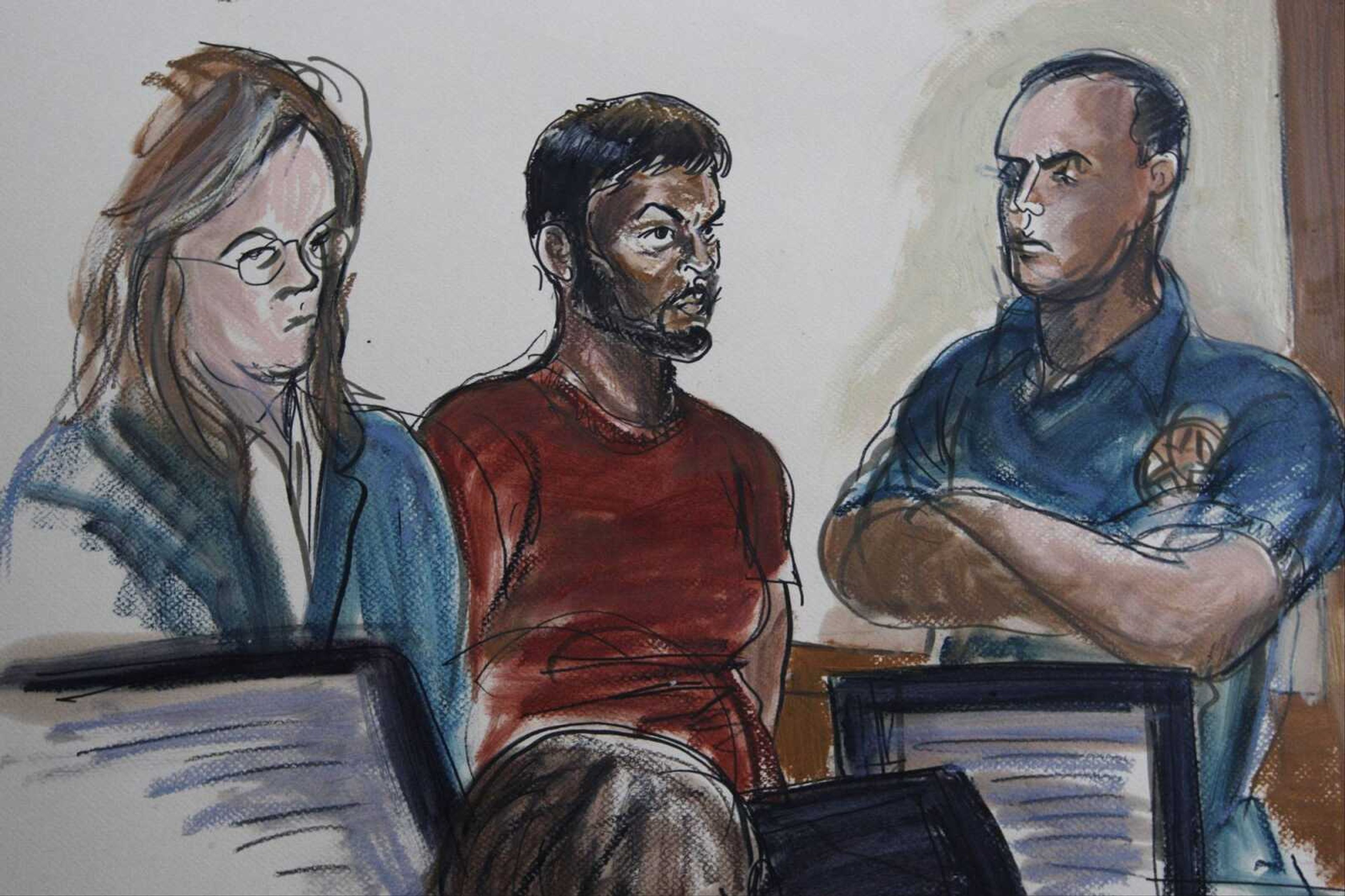University officials say they correctly followed admission process in Nafis case
According to Southeast Missouri State University officials, the admissions process of a former international student arrested in New York last month and charged with planning to bomb a federal building was appropriate.
According to Southeast Missouri State University officials, the admissions process of a former international student arrested in New York last month and charged with planning to bomb a federal building was appropriate.
Quazi Mohammad Rezwanul Ahsan Nafis was arrested by the FBI on Oct. 17 and charged with plotting to bomb the Federal Reserve Bank in New York City.
Nafis attended Southeast only in the 2012 spring semester. He requested Southeast to transfer his transcript to a Brooklyn, N.Y., institute in the summer.
When Nafis was admitted to Southeast, he failed to disclose his previous college transcripts from North South University in Dhaka, Bangladesh. On the international students application at Southeast, it requires international students to disclose all, if any, previous college transcripts.
According to an Associated Press report, a North South University official said Nafis was "a terrible student who was put on probation and threatened with expulsion if he didn't bring his grades up and that he eventually stopped coming to school."
According to Debbie Below, associate vice president for enrollment management and director of admissions, it is not uncommon for international or non-international students, who did not recently graduate from high school, to not disclose their previous college transcripts.
"It is very common for students to apply for admissions and not disclose all colleges that they have attended for many reasons," Below said. "It's not that they're being dishonest. It could be that they withdrew from those courses, and they didn't think they needed to tell us about that."
Below said 95 percent of all college attendance records are documented in the National Student Clearinghouse, a centralized database in the U.S. If a student applies at Southeast who did not just graduate from high school, Southeast has access to the National Student Clearinghouse system, called Student Tracker, which allows Southeast to view other colleges and universities that a student attended.
"On a college side we want to know everywhere they have attended," Below said. "I don't think all universities go to that extent and check the National Student Clearinghouse the same way, but we do because we know it's common for students to not disclose all the universities that they have attended. However, on an international landscape, obviously there is not a centralized database that tells us if a student has attended somewhere else."
When Nafis gave Southeast his North South University transcripts on Jan. 18, the day after classes began, he was placed on academic probation.
"There was nothing we could do about receiving the college transcripts earlier," Below said. "We did follow the admissions practice."
According to Zahir Ahmed, director of international education and services, one problem with international students not disclosing their transcripts from previous colleges is that, in many countries, there is no concept of transferring credits from one college to another. If international students want to change colleges, they must send their high school transcripts. Their previous college transcripts are insignificant.
"If you're a student in India, you go to one university, then you decide you don't like it. You have to start all over again in some other university," Ahmed said.
In order for an international student to come to the United States and attend a college, he or she must apply for a student visa.
"Most often they apply to several universities in the USA, sometimes in other countries as well," Ahmed said. "They apply from their own country. Then, when colleges admit them then they take the admission of whichever college they would like to attend and they would go to the U.S. consulate and they apply for a visa there."
According to Ahmed, many international students who apply for student visas get denied.
"Those that want to be students have to show that they have enough funding to come to the U.S., that they have been admitted into a university in the U.S. Then, they apply for the visa," Ahmed said. "The U.S. allows [in] 40 to 50 percent of people who actually want to come here."








